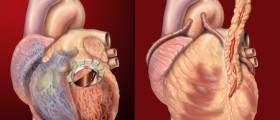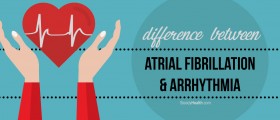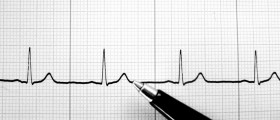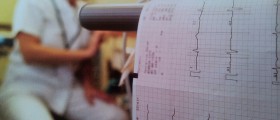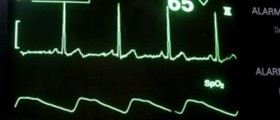Feeling a strong heart beat in the chest is referred to as heart palpitations. Many people become terrified when they feel palpitations. Palpitation does not mean your heart is sick.
Many have experienced this fluttering sensation in the chest, followed by a racing sensation that usually lasts for a few minutes then goes away leaving a person worried about his hearts.

However, when this happens on a more consistent basis it is advisable to visit to your general practitioner who will search for the underlying condition that is causing these irregularities.
Usually a good medical history, thorough physical exam and medication review a patient is on can differentiate harmless palpitations from more serious heart rhythm irregularities.
The circumstances surrounding a palpitation episode often provide clues to the etiology. The best way to evaluate palpitations is to document an episode with an electrocardiogram. A portable monitor is sometimes required to record heart rhythm over time, usually for 24 hours.
Harmless palpitations generally do not need monitoring. But anytime an unusual or prolonged palpitation causes concern you should promptly visit your doctor.
Stress and depression can cause the heart to race or skip a beat. In addition, some antidepressants can cause arrhythmia and palpitations.
Stimulants. Such as coffee, chocolate and energy drinks. Also a wide variety of drugs can affect the regularity and the rate of heart beat.
Alcohol. Especially binge drinking is a common source of palpitations. Alcohol withdrawal may cause heart racing and palpitation.
Physical Activity. Heavy workouts in the gym can cause the heart to beat much faster because the body needs of blood filled with oxygen and nutrients dramatically increase during exercise.
Thyroid disorders. Heartbeat irregularities are a very common symptom of an overactive thyroid this is usually accompanied by other symptoms such as hand tremor, nervousness and weight loss.
Mitral Valve Prolapse. Very common in the general population and usually not a serious condition. Mitral valve prolapse causes abnormal sounding heartbeats called (murmur) and can predispose the heart to arrhythmias (heart beat irregularities). Studies have shown that patients with mitral valve prolapse are more prone to experience palpitations.
Menopause. Some women complains of heart palpitation during menopause due to the hormonal changes that the body undergoes during this period. Heart rate has been shown to increase by 8-16 beats during time of hot flashes. Some women reported that heart palpitations improve with hormones. Little is known about this phenomenon, as a result women can mistakenly be diagnosed with heart disease and prescribed unnecessary medication.
Some palpitations are symptoms of arrhythmias. Some arrhythmias are signs of heart conditions, such as heart attack, heart failure or heart muscle disease (cardiomyopathy). However, less than half of the people who have palpitations have arrhythmias.
Treatment for palpitations depends on their cause. Since palpitations are often harmless and go away on their own you only need to avoid things that trigger them such as stress and stimulants. Also yoga and relaxation techniques are very useful to reduce palpitations. Your doctor may prescribe beta blockers for palpitations (medications that slow down a heart beat).
- www.health.harvard.edu
- Photo courtesy of SteadyHealth


